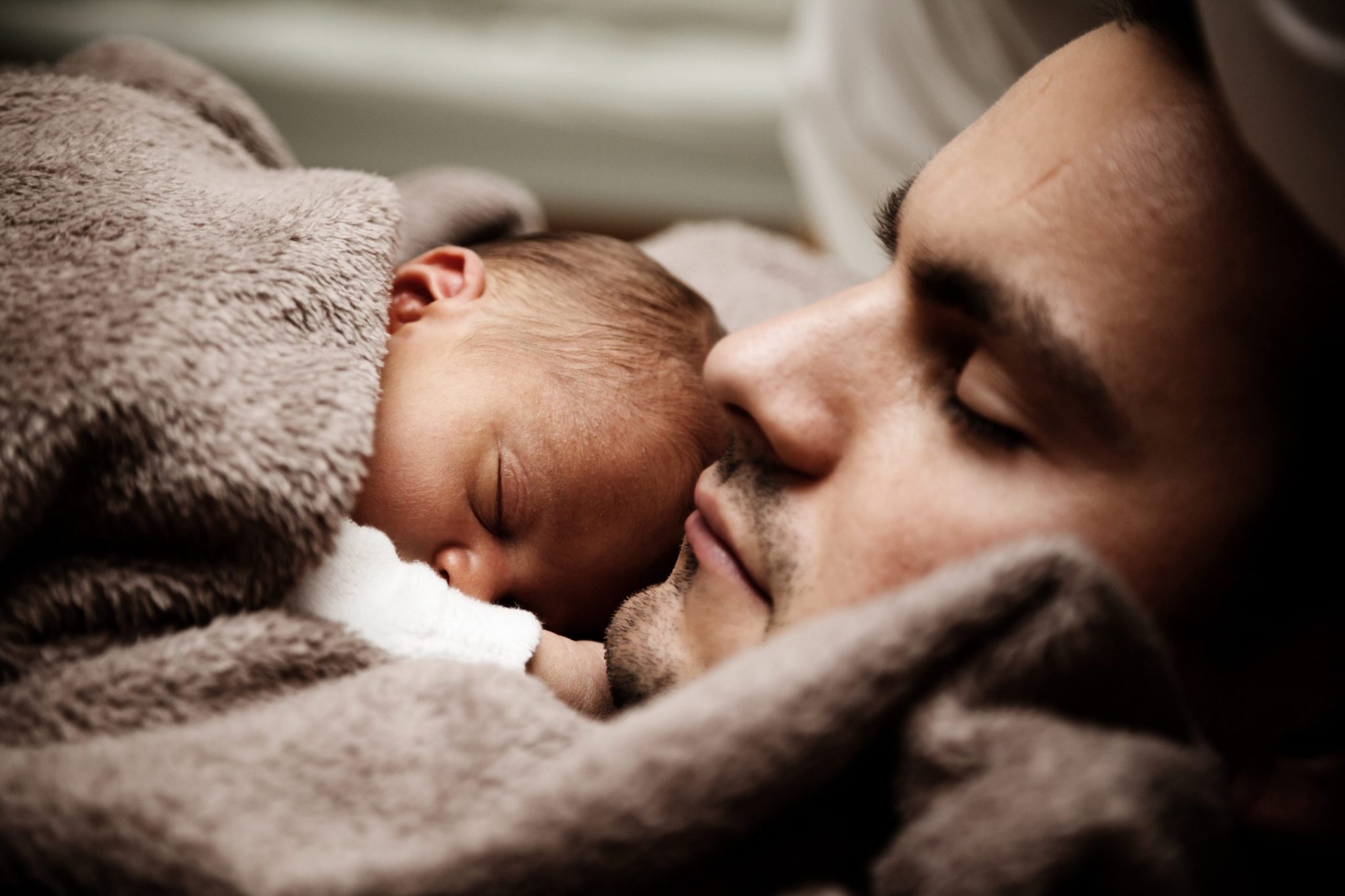Babies fight sleep for a variety of reasons. For instance, they might be overstimulated, hungry, or uncomfortable and hence, can’t fall asleep.
Reasons for fighting sleep differ for every baby and even with different days and times.
According to most experts, babies don’t hate going to sleep. In fact, they need a lot of sleep to grow and develop physically and mentally.
But sleep is also a delicate endeavor for babies. Many babies face difficulties falling asleep, and it might appear like they are fighting sleep.
You can figure out the issue by observing your baby’s habits and actions and employing trial-and-error techniques.
Let’s take a look at why babies fight sleep and what are some possible solutions for this predicament.
What does “fighting sleep” mean?
Every baby is unique. There is no singular manner in which babies fight sleep.
Fighting sleep may vary from baby to baby.
For babies with an easygoing temperament, fighting sleep may not appear quite dramatic. They may just have a more challenging time going to sleep.
But for other babies, fighting sleep is far more dramatic. You will observe lots of crying, screaming, and physical movements such as back arching.
Some babies are very upset and fussy when they resist sleeping. And they might “almost” fall asleep only to suddenly wake up and begin screaming.
When it comes to fighting sleep, it’s not a one-size-fits-all scenario.
Some signs that may indicate that your baby is fighting sleep are:
- Baby cries a lot: Your baby may cry while attempting to fall asleep.
- Baby wakes up as soon as you put them down: This is usually the most significant sign of fighting sleep. Your baby will be tired and almost asleep but as soon as you put them down, they will be wide awake.
- Baby becomes rigid: This is one of the most obvious signs of fighting sleep. Your baby resists all your efforts to comfort them and put them to sleep. You will notice that their body becomes rigid.
- Baby arches their back: According to experts, back arching is a sign of fighting sleep.
- Baby balls their fists: When your baby balls their fist, they may be fighting sleep.
- It takes forever for the baby to fall asleep: If your baby is taking too long to fall asleep, chances are they’re fighting sleep.
READ MORE: Newborn Sleep Basics: What To Expect From 0-3 Months
Why Do Babies Fight Sleep?
Many things could keep your baby from getting the rest they need.
Knowing why your little one is struggling to get some sleep will help you address the issue.
So let’s look at the possible causes of fighting sleep.
Day/night confusion
If you have a newborn on your hands, they might be fighting sleep at night because of day/night confusion. This is a common and normal phenomenon in newborns.
Circadian rhythm is the internal clock that controls every living creature’s sleep and wake cycle. A baby is born with a weak sleep and wake rhythm. The circadian rhythm takes time to develop. Over the first six months, newborns start responding more strongly to the day-night cycle.
Hunger
Hunger is a valid reason for fighting sleep.
Remember that your baby is going through rapid growth during their first few years. And all that growth is heavily reliant on plenty of nourishment.
If your baby is sucking on their fist, rooting, or licking their lips, they might be fighting sleep because of hunger.
Make sure your baby gets the appropriate number of feedings based on their age.
Health issues
If your baby is struggling with health issues like reflux, colic, cold, or other illnesses, the accompanying discomfort may affect their sleep.
A sick baby has a more challenging time going to sleep.
Please do not hesitate to contact your pediatrician if your baby’s health issues persist.
Physical growth and developmental milestones
Usually, sleep regression is triggered by your baby hitting new milestones. This is normal. A baby would much rather be practicing their new skills than sleeping.
Overtiredness
A baby becomes overtired when they’ve been awake for longer than they can tolerate.
This activates a stress response, causing the release of hormones like cortisol that make it harder for your baby to settle down. This is why the more overtired a baby becomes, the more difficult it becomes to fall asleep quickly and stay asleep.
Not tired enough
Your baby might not be ready for sleep because they are not tired enough.
Some reasons contribute to this. Maybe your baby:
- took a longer nap than usual.
- is experiencing changing sleep needs due to growth and development.
Overstimulation
Babies can become overstimulated by their environment, which can make it difficult for them to relax and fall asleep.
Sources of overstimulation can include crowds, noisy toys, loud music, excessive light, or exciting activities.
Separation anxiety
Babies may experience separation anxiety, especially when they are being put down to sleep in a new environment.
Every day your baby’s bond with you grows. This causes your baby to miss you and want you near when you are away.
This is where the separation anxiety begins.
Separation anxiety is mostly seen anywhere from 8-18 months. Especially around 9 months, separation from the mother can be a real issue. Because a baby’s brain begins to process that when you are not around, you are somewhere else. And the baby may fight sleep because they don’t want you to leave.
READ MORE: Put Your Baby To Sleep In Less Than A Minute
When Does Fighting Sleep Begin?
Experts say that sleep fight is mostly seen anywhere between 8-18 months. This is the period when separation anxiety occurs.
But as there are many reasons to fight sleep, it can be seen during all the stages of growth and development. For instance, a 2-month-old baby might fight sleep as well because of overstimulation and being overtired.
What Can You Do When Your Baby Fights Sleep?
If your baby is fighting sleep or waking up frequently, you can help them sleep.
The measures you take will depend on the reason behind why your baby is fighting sleep.
It may take some time to understand why your baby resists sleep and what you can do to help them sleep better.
A few general tips to help your baby sleep are:
Watch for your baby’s sleep cues
You should watch for sleep cues to avoid your baby becoming overtired.
Sleep cues often include:
- fussiness
- being less active
- losing interest
- staring off into space
- yawning
- rubbing eyes
- crying
When you catch your baby’s sleep signs, put them to bed within minutes.
Being overtired is the most common cause of fighting sleep. It’s best if you put your baby to sleep before they get overtired.
According to the American Academy of Pediatrics, the average amount of sleep for babies is:
- 0 to 3 months: 14 to 19 hours (including naps)
- 4 to 12 months: 12 to 16 hours (including naps)
- 1 to 2 years: 11 to 14 hours (including naps)
READ MORE: How To Deal With Sleep Regression At Every Age
Establish a soothing bedtime ritual
A regular bedtime ritual can help your baby sleep better.
A soothing bedtime ritual may include,
- taking a bath
- listening to soothing music
- reading books.
When setting a ritual, you should take care to:
- Be consistent: The more consistent you are, the more likely your baby is to follow the routine.
- Adjust the routine as your baby grows up: As your baby grows, their sleep needs and habits will change. What works for a 2-month-old baby won’t work for an 8-month-old. Make sure to be flexible and incorporate changes in your baby’s sleep routine to accommodate their needs as they grow.
- Personalize their bedtime routine: Choose activities that calm your baby down. If your baby isn’t keen on bathing before bed, don’t insist on bath time.
- Connect with your baby: Make them feel secure and loved. A bedtime routine is a good way of connecting with your baby.
- Keep the bedtime routine short and sweet: Bedtime routines should be like a rhythm that signals to your baby that it’s time to sleep.
In general, it is important to try to establish a consistent bedtime routine, make sure that the environment is conducive to sleep (e.g., dark, quiet, cool), and address any physical or emotional needs that may be preventing the baby from falling asleep.
Establish day-night behaviors
When your baby wakes up in the morning, open the curtains and let the natural light come in. Doing so regularly will attune your baby’s body clock to register that it is daytime.
During the day, play and interact with your baby more frequently.
When it comes to bedtime in the evening, dim the lights and take time to wind down. Reduce your activity and arrange for some quiet downtime This will allow your baby’s body clock to adjust to nighttime and signal that bedtime is near.
READ MORE: Why Won’t My Baby Sleep?
Create a nap and sleep schedule
A nap and sleep schedule is unique to each parent and child. This is based entirely on your baby’s needs and your lifestyle.
How much sleep does your baby need according to age, development, and personality? By analyzing this question, you can create a nap and sleep schedule that works for you and your baby.
Contacting a sleep expert or pediatrician might help you better understand your baby’s sleep needs.
Ensure your baby is getting enough feeds
Newborns typically feed every 2 to 3 hours. As your baby grows, the time between feedings will increase, and feedings will lessen.
Respond to your baby’s sleep challenges patiently
Dealing with a fussy or needy baby is challenging. It is even tougher to stay calm, composed, and relaxed while at it.
Your baby feeds off of your emotions. Staying calm can help your baby calm down as well.
READ MORE: What Prevents Babies From Sleeping Through the Night?
Manage separation anxiety
If you notice signs of separation anxiety, try to help your baby feel secure on their own. This might take some time, extending to months.
Usually, separation anxiety occurs due to the developmental growth of a baby. Using the following strategies can help:
- Place a security or comfort toy away from the baby’s reach but within their line of sight.
- Leave your baby in the room for shorter periods while supervising them from afar.
Can A 3-Month-Old Baby Fight Sleep?
A 3-month-old baby may fight sleep, and this is quite normal.
When a 3-month-old baby refuses to sleep, this is usually because they are overtired and overstimulated.
A baby who is not relaxed will fight sleep. Adjusting your daily life to meet your baby’s needs will greatly help.
Why Do Overtired Babies Fight Sleep?
When a baby is overtired, their stress response system triggers cortisol and adrenaline.
Cortisol helps to regulate the body’s sleep-wake cycle while adrenaline is the fight-or-flight agent. This makes it hard for the baby to fall asleep.
If you notice that your baby is overtired and is fighting sleep, you can try to:
- Swaddle your baby (once they show signs of learning to roll over, you need to move away from swaddling)
- Hold and rock your baby. This will help calm them down.
- Make sure the room is dark and the environment is comfortable
- Play white noise or soothing lullabies
READ MORE: What is the Best Baby Sleep Schedule?
References: medicalnewstoday.com, webmd.com, whattoexpect.com, parents.com, verywellfamily.com, health.clevelandclinic.com, healthline.com










